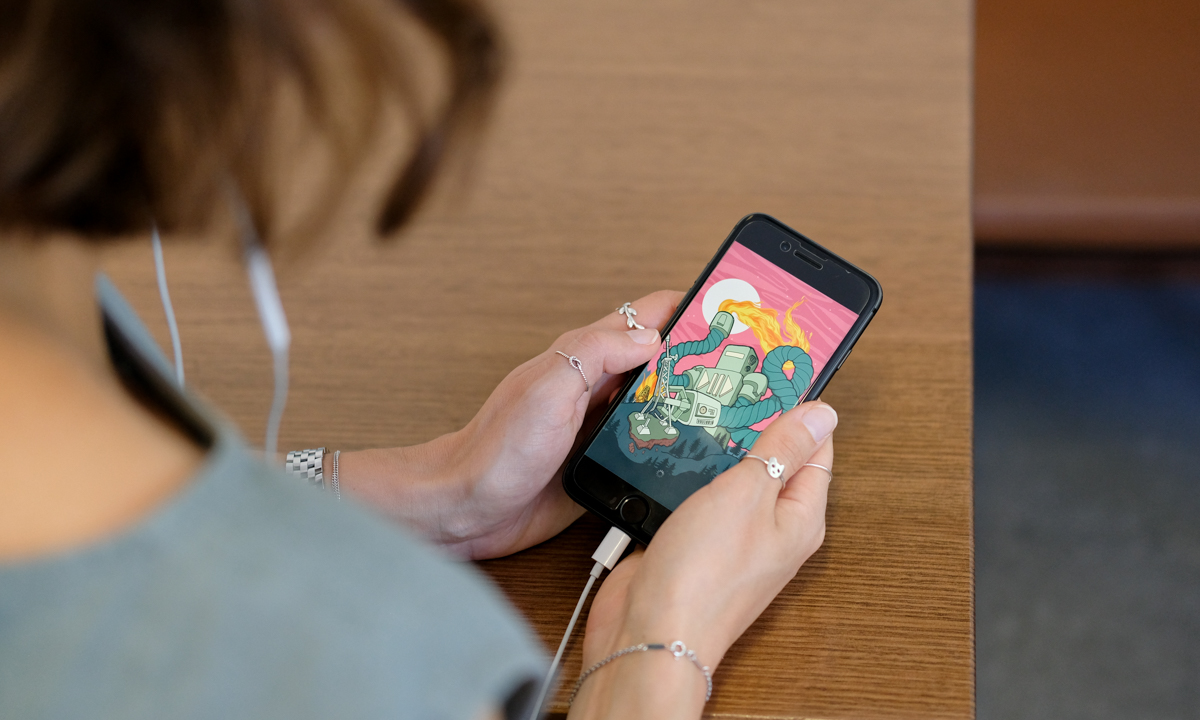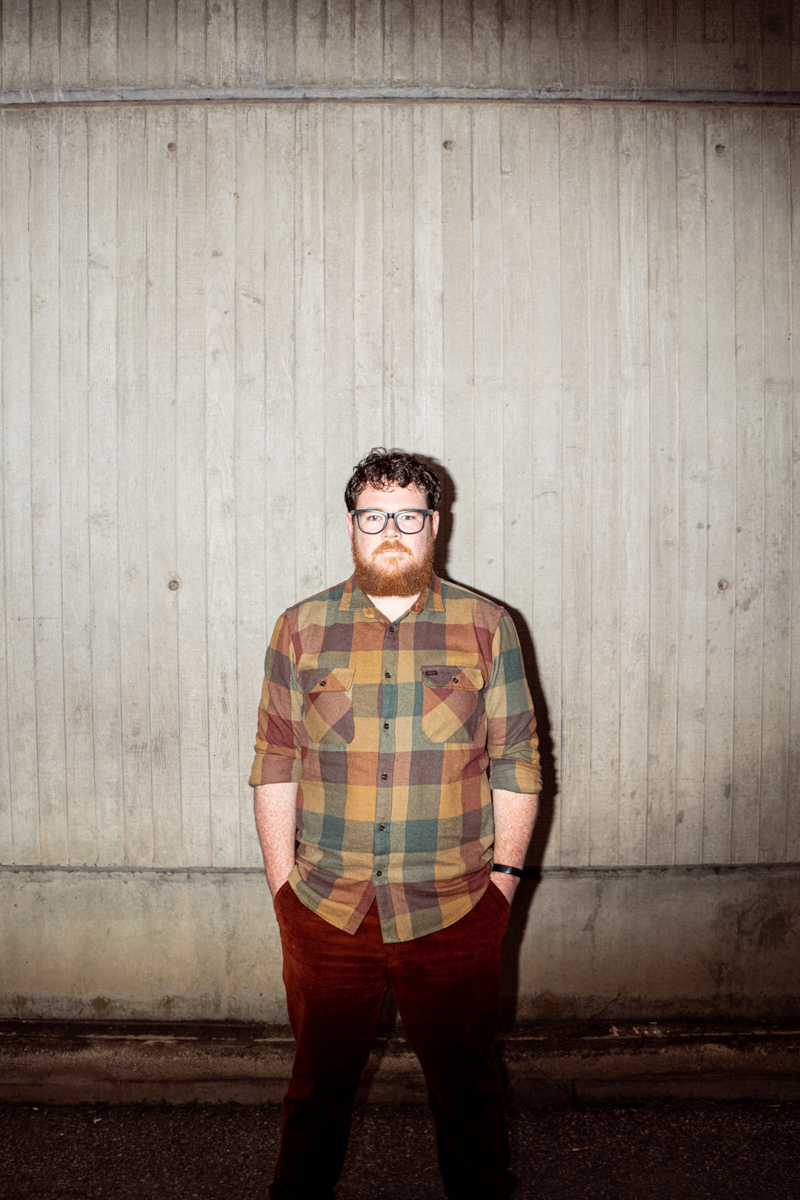What started as an SA music blog founded by Luke Penman over a decade ago snowballed into a multi-faceted project with the aim of building up our state’s local music scene. In December 2020, the Play/Pause/Play stream fell silent.
Local internet radio station Play / Pause / Play has ceased broadcasting
At the end of November 2020, CityMag sat with Play/Pause/Play founder Luke Penman to talk about his Best Innovation win at the SAM Awards from a few weeks before.
It had been a year of highs and lows for Luke. Keeping the Play/Pause/Play radio station alive would always draw a lot of energy from him – particularly mid-year, at the time of the annual radiothon, which would raise money for licensing fees and operational costs.
Given the state of the arts industry in June 2020, he decided not to run a crowdfunding campaign last year, feeling both that the money could be better placed supporting venues, and that he wasn’t certain how much longer he could run the station.
But for all the toll of the pandemic, it did also provide Luke with an opportunity to focus more attention on Play/Pause/Play.
As a sole trader, Luke was eligible for JobKeeper payments, meaning the major stress of running a grant- and audience-funded project like his (making enough money to justify the effort) – was taken care of in the short term.
He also received a grant from the Music Development Office to fund a new project, a 10-episode podcast series covering 50 local South Australian acts.
The money would have been better spent, Luke says, on the radio station itself, but a stipulation of the grant was the application had to be for a new project.
“I’m glad that I got the opportunity to work on the new podcast project this year. But having to find something new to apply for project funding, means that I can’t do the thing that I actually need to be doing, which is building an audience more with this brand,” Luke says.
By early October, Luke vented on Twitter about the feeling of futility that was dawning on him, in relation to his work with Play/Pause/Play and its place within the South Australian and Australian music industry. The Australian Independent Record Awards were in town, and he hadn’t been invited – a down.
A week later, he was notified of his nomination for Best Innovation at the SAM Awards, and a month later he would win the award – another up.

By the time we sat down for an interview following the award ceremony, Luke was unsure of Play/Pause/Play’s long-term future.
He had opened up voting for the Heaps Good 50, which he has run every year since launching the radio station in 2018. The event, a beautiful moment of connection within the South Australian music industry, has always stoked the fire in his belly to keep the radio station alive.
He wasn’t so sure the flames could be stoked again in 2020.
The vote tally for the Heaps Good 50 hit 1,400, and on Boxing Day, the count saw Teenage Jones take the number one spot in the top 50 South Australian artist countdown.
A few days later, at about 1am on 29 December, the Play/Pause/Play radio stream fell silent.
–
The earliest iteration of Play/Pause/Play launched in 2009 as a music blog. Luke’s ultimate aim at that time was to promote gigs and offer a chance for people to hear local music and get excited about heading to gigs.
This was a time before Spotify and other streaming platforms made accessing music an easier, but muddied, process.
“A huge part of it for me was convincing my mates to come out and come and see this local band, and they’d come and they’d have an ok time,” Luke recalls.
“I’d have a great time, and they wouldn’t necessarily be interested in coming back again or not. But if I could get them to listen to one song, they could learn the hook, learn the chorus, they’d come out and see them, that one song would play, their face would light up, they’d sing along, and suddenly they were having a 10/10 night instead of a 7/10 night.
“[And] what I have found with a lot of local gigs is one person can bring 10 friends, and that can be 40 per cent of the crowd at some of these shows. So [getting] that key person that already knows and loves the band… [and] their friends to hear that one song.”
Play/Pause/Play developed into a podcast in the early ‘10s, and Luke then decided to volunteer at Radio Adelaide to develop his presenting skills and learn the ropes of radio. The PPP website became dormant, until about 2018.
There were redundancies made at Radio Adelaide in 2017, and this caused Luke to consider the future of community radio stations, and how operations of that scale might be affected by automation.
He set about designing a digital radio station of his own, drawing on his thoughts on where the industry was going and implementing the use of algorithms to create 24-hour playlists.
“At that point, the University of Adelaide decided they didn’t want to fund [Radio Adelaide] anymore, and we were going to have very serious conversations about staffing levels, and how many people it takes to run a station,” Luke says.
“And there were 200-and-something volunteers making that content for 100-and-something hours a week. So certainly, I was [looking at it as], ‘Cool, but if I spend x number of hours curating the automation and it just runs on its own, then how much extra time do I have to do other stuff, like promo, online content, social media, et cetera.”
This led to the relaunch of Play/Pause/Play as a radio station in 2018.

This new iteration of PPP allowed Luke to continue his pursuit of building up South Australian artists and the local live music scene.
“The big thing for me was I’ve seen so many incredible artists playing at tiny venues, and they deserved to be playing in front of bigger audiences,” Luke says.
“So the idea for me was, if I can create something where people trust that what I’m playing is good, if they’re given enough chances to hear it three or four times, get over the initial feeling of ‘I’ve never heard this song before, I’m not sure if I like it,’ to the point of ‘Ok, now I like it.’
“Guess what? They’re playing at Jive this weekend, or in two months’ time. You can buy a ticket now.”
The radio station was founded with the aid of a $5,000 City of Adelaide grant and a $15,000 crowdfunding campaign, and a further $15,000 from the City of Adelaide as part of a “strategic partnership”. But it was run almost wholly on Luke’s boundless enthusiasm.
In order to make the most of the funds he was given, Luke needed to focus his attention on building an audience. This required a lot of attention. It made it difficult for Luke to find work – he would be upfront in interviews about what Play/Pause/Play meant to him.
Eventually, Luke’s passion for the project began to result in drawbacks in his personal life.

Luke with his wife, Amy Moran
“I’ve done what I could in the last two years, but there’s been far too many times where my wife has had to pay the rent and buy the groceries and get dog food and everything. There’s only so much that you can let that go before you say, ‘Well, I’m actually just being a drag on the family here,’” Luke says.
There was also the effect of no longer being able to afford to go to gigs, isolating him from the live music community he was working so hard to serve.
“The biggest thing for me that I’ve started thinking is that I feel like I’ve barely gone to any gigs in the last two years, since I’ve been running this thing,” he says.
“If I had’ve, I probably would have been feeling a lot better about it and a lot stronger about it, because every time I do go to a gig, someone mentions it, or someone I’ve never met says, ‘Are you the guy from Play/Pause/Play?’
“If I can’t even afford to get a bus in and out of town, then I’m not connecting with the community, with the audience, and I’m not getting that feedback.”
–
Luke got a job last year that he loves, as part of the Adelaide Festival team. As much as anything else, this led him to truly consider the future of Play/Pause/Play.
He is now part of the Adelaide arts community and making a living – something he has been striving for since the radio station launched.
Though the stream has stopped, the Play/Pause/Play website is still live. At the time we speak, in November, Luke is uncertain of its future.
“Social media stuff will stay there, the website will stay there, the podcast that I’ve made this year, which was with funding from the Music Development Office… will at least stay up,” Luke says.
“But I just don’t know. I don’t know what I’ll do with it. I know that I’ve got a full-time job for the next few months, and I can just focus on that and try and see my friends and play some video games and catch my breath.”

There are few voices left in Adelaide media dedicated solely to our live music industry. It’s easier to recount those we’ve lost: Rip It Up, dB, B-Side, and Yewth. Another 2018-era venture, The Australian Underground, announced in October last year it was going on hiatus. Community radio stations Radio Adelaide, Fresh 92.7 and Three D Radio thankfully remain.
Without a media ecosystem supporting and telling the stories of South Australian musicians, the work of getting noticed by the major players of the Australian music industry located on the eastern seaboard is made all the more difficult.
The loss of a radio station wholly dedicated to the South Australian live music industry, and the dedication of its founder, is a significant detriment to the our local industry.
But again, the future of Play/Pause/Play is still only uncertain.
–
Despite our (perhaps overly) dramatic reading of the situation, Luke is confident in the SA music industry’s ability to persevere into the future.
“If Play/Pause/Play, Sunny Side, Space Jams, Radio Adelaide, Fresh and 3D all fell over tomorrow, there’d still be some kind of industry, but it would be weaker,” he says.
“I think individual artists can still do what they’ve always done, and will. I think there’s venues like Lion Arts Factory and the guys at the UniBar, especially the College Green stuff that they’re doing, and especially the connection with the Beer & BBQ Festival.
“We definitely need venues who can say, ‘This is what we want to be, and this is the artist we’re going to do and the community we’re going to cultivate around this.’ And the Wheatsheaf is a fantastic example of that. So many people don’t care who’s playing at the Wheaty, they know they’ll like it.”
Whether Play/Pause/Play will have a role in that future, though, we’ll have to wait and see.




